
This light fantasy sums up best as a combination of sports and human drama. When main character Ogi Shunsuke rises again as Asahina Takaya, we watch him grapple with attempts to continue his dream (as a pro baseball player) while dealing with issues stemming from both his old life and new. But while Dream Again watches pleasantly as a whole, the script probably suffers most out of any other aspect. One must cling to suspension of disbelief a bit too much (even for a fantasy), with many a coincidence, cop-out, and shrug-off in between. At least when it comes down to the supernatural bit. Dream Again never commits the cardinal sin of being boring. It even does fine with emotional elements, so basically the “human story” portion is much stronger.
You know when something about an actor “just works”? Sorimachi Takashi embodies this idea completely. Blessed with serious star quality and magnetism, he brings up the cast rating on his own. I've long since grown tired of the earnest lead archetype, yet I easily gravitated toward Sorimachi’s character. My only complaint would be that sometimes it became obvious he struggled with failings in the script, though that’s understandable. Other highlights include lovely Kato Ai, a much grown Shida Mirai, and the surprisingly lovable Kodama Kiyoshi as Tanaka, the heavenly guide. He might be the cutest old man ever, seriously.
Most of the music in Dream Again makes its impression during emotional sequences. Softer instances were best, while the suspense theme was so silly it drove me crazy after the third play. The ethereal introductory theme stands out, as does Kobukuro’s yearning Aoku Yasashiku (roughly “Blue and Gentle”). Little else was memorable.
Questa recensione ti è stata utile?

Most media set during the Warring States period tend to pack on backstabbing politics, tragic romance, and lofty themes. Don't expect such things here. Little Big Soldier never attempts pretense, content to remain a straightforward buddy/road-trip fusion with a simple message. Its narrative follows a "small potatoes" conscript who has the luck to capture an enemy general. We mostly follow the pair in their dangerous trek across the Chinese wilderness, facing down nature and war-born troubles.
But the mood generally stays light. Continuing in the spirit of many Chan vehicles, even action sequences are infused with comedy. Add to this finely choreographed fights and appealing situations; the result is an amusing and fast-paced film, if an uncomplicated one. If issues exist, they manifest themselves within the last ten or so minutes. The outcome seems to betray the established mood of the film and (while groundwork for the ending is laid), it nearly takes the air out of the entire experience.
Jackie Chan may come to mind more for physical prowess, but his performance as the soldier is exceptional. Cowardly and street-smart, this character is startlingly deep and explored with careful maturity. Wang Lee Hom acts well and is believable as the general; though alone he does not sparkle, his chemistry with Chan is insanely dynamic. Any scene they have together is utterly wonderful; I would watch Little Big Soldier again for this aspect alone. Definitely watch this if you like bromance, unique action, and of course, Jackie Chan. Other highlights include: incredible scenery, sharp cinematography, and a cute blooper reel during the credits.
If you pay attention to music, the orchestrations are high quality. Of those that stand memorable, vocals by the lone female character and the soldier are best. I don't think I'll ever forget the lyrics, "a big road leads to my home," and perhaps you won't either.
Questa recensione ti è stata utile?
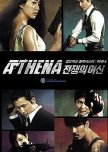
Athena: Goddess of War
13 persone hanno trovato utile questa recensione
The primary strengths of this drama rest in fabulous action sequences and beautiful location shooting. Scenes filmed in Italy are truly remarkable; the episodes spent there are some of the best. However, after the events that brought us to Europe conclude, writing mistakes and muddy character motivations start to bog down key elements of the story line. Thanks to a fast pace and simple plot, some of this can be forgiven and there's no chance of the viewer getting lost.
Performances in Athena were a mixed bag. Strong actors worked with the weak and certain characters drowned in script issues. Villains were more compelling than the heroes for instance. Cha Seung Won is particularly wonderful, playing intense and sympathetic though his purposes are dark. I also found myself very invested in the fate of his strangely lovable minion/companion Andy, as portrayed by the adorable Sean Richard. As for the heroes, you have a talented Jung Woo Sung working with clipped wings. He tries to make something out of Lee Jung Woo, but the script affords him little more than saving the day and being struck silly with attraction for his female lead. Speaking of her, my first encounter with Soo Ae found her wanting. She felt limited in ability despite having a role with written potential; most of her scenes were spent gaping or wide-eyed. The love line between the two was poor as well; Woo Sung had more chemistry with a certain SM Entertainment megastar in her two episode cameo.
Athena: Goddess of War is for those viewers hankering for a modern action series. It's light and fast, though not worth subsequent viewings. Those that love SM artists might enjoy it too, since many are highly promoted both in the cast and in the soundtrack. I'd recommend it without taking the plot too seriously; this show has its fun moments.
Questa recensione ti è stata utile?

When we first meet Sang Hoon, he rescues a woman being beaten on the street—only to turn on her himself moments later. This is the stunning first in a series of reversals the viewer can expect of this man, our “hero”; he reveals himself to be every bit a hateful brute, the quintessential ruthless debt collector. What makes Breathless brilliant is the ability to portray such a vicious shell, even while opening it to reveal the victim hidden inside. This aspect is helped along by the inclusion of a second plot thread, that of a student Sang Hoon bonds with over the course of the film. They may never speak of their individual struggles, but their stories are a sad parallel of the other. Perhaps this is why they are able to find peace together, if even for a little while. All they have otherwise are little moments of release found in copious cursing…or in Sang Hoon’s case, a fight wherever and whenever.
Would you believe me if I told you this was a debut film? Had I not known going in, I might not myself. This is a first effort by Yang Ik Joon, who wrote, directed, produced, and even starred in the film. What a massive undertaking for a new director this was; how many can boast their first shot at something was just about perfection?
In his capacity as Sang Hoon, Yang Ik Joon maintains a powerful performance all across the board. I honestly couldn’t imagine a better fit for the part, as natural and believable as he is. Perhaps it helps that Yang wrote the character (and thus would be more deeply informed as to his “heart”), but that would be selling his obvious talent short. There’s something to be said about an actor who is as visceral, as real, as this one. Otherwise you’ve got Jung Man Shik doing his thing as one of the best supporting actors around, and talented Kim Kkobi in one of her first roles. Her scene chemistry with Yang Ik Joon is incredible, but even on her own she nearly had me crying more than once. An excellent, excellent cast.
Please be warned that this film contains depictions of violence, including serious instances against women. Though much of the darker stuff happens off-screen, it’s enough that one will want to be careful. Those sensitive to swearing should also take notice, because pretty much every other sentence has…well, something.
Questa recensione ti è stata utile?

A major selling point of Shark rests in its surprisingly solid plot. The writers seem to have taken delight in the meticulous set up of their mysteries and, for the most part, executed them perfectly. Something I found unique was the way human ugliness and desperation colored the events. Many characters committed terrible acts and possessed deplorable qualities; innocent people suffered and became cornered by forces they couldn't control. It felt honest and multifaceted, a fantasy painted in the realistic gray tones of the world. Unfortunately, despite obvious care worked into the script, I felt disconnected from most of the characters until late. They often felt like mere pawns shuffled along the winding path of Yi Soo’s revenge. By the time one truly becomes invested, few episodes remain. This might be why people are conflicted about the ending, though it worked for me in any case.
Unsurprisingly Kim Nam Gil owns the stage as the vengeful Yi Soo. Not only is this his first drama appearance in years, he's still wildly talented and believable. Even when his character merely played puppet master from the shadows, Kim Nam Gil found a way to infuse him with humanity. His performance is equal doses pitiable and menacing, good and bad, black and white. Without him, Shark sinks. Ha Suk Jin (Joon Young) and Park Won Sang (Detective Byeon) play the most consistently sympathetic individuals in the series. They also feel the most like the “good guys,” in a story where you can never know who to trust. My first extended experience with Son Ye Jin was lackluster; I believe it may be the fault of the writers, since the young Hae Woo resounds more than her dithering adult counterpart. She felt most like a straw man whose purpose was to lead us through Yi Soo's machinations. I did like Honey Lee in her turn as Secretary Jang. Her interactions with the character of Dong Soo were surprising but much needed comedic gold.
There's absolutely nothing to complain about regarding Shark's musical repertoire. Instrumental tracks play their part without becoming heavy handed. Two vocals stand out: Boa's haunting ballad "Between Heaven and Hell,” and the soulful offering “Sad Story” of Boohwal's Jung Dong Ha.
Questa recensione ti è stata utile?

Please do not allow the hospital setting to frighten you away. Despite how one might find Shiroi Kage described, romance stands at its essential core. There are no episodic cases to suffer through, but rather three long term ones; each is a parallel to or foreshadowing element for the main plot. This then centers on the growing love between a secretive, Byronic doctor and the gentle nurse he first met—as if destined—at a riverbank beloved by both of them. Fear bars the way to happiness, but something direr might be lurking to separate the two forever. And no: it isn’t a family member, birth secret, or anything that springs up on you out of left field. The cues are laid out on the table early on, leaving the viewer to an involving “will they, won’t they?” that will leave one saying “Please do!” regardless of perceived consequences.
The couple in this series truly touched me. It helps that the drama itself seemed to indulge my desires in certain things. If I was think-shouting something (“Go after her!,” “Hold her, fool!” “He’ll be there when she turns around, watch,”) often it would come to pass. So many scenes between the two are memorable, enough that this series might have the most of any romance I've seen to date. Whether at the river or dredging up transient dandelions, I doubt I’ll forget any of them soon. Some even made me cry (just ask the poor friend who had to listen to my sniveling). There’s a certain feeling reminiscent of classic romance literature—specific character types, big emotion, grand gestures, ambitious theme combinations. But more than anything, through this pair, viewers will experience an elegant passage across the delicate issues of love, life, and death.
Shiroi Kage marks my second drama with both leads, Nakai Masahiro (Naoe-sensei) and Takeuchi Yuko (Noriko). As pleasurable as each first meeting was, in seeing them together I can be sure in my enjoyment of both. Here Nakai-san plays the type that weakens my knees—Byronic, dark, but loving and even vulnerable. He’s very much the “white shadow” of the title, both figuratively and literally; he wears a white lab coat, and is a decent person who seems to be hiding behind his own emotional darkness. Perhaps Nakai doesn't match my taste physically, but that never once stopped me from finding Naoe-sensei attractive. Takeuchi-san plays a character that snaps together wonderfully with the puzzle piece that is Naoe-sensei, but cannot be called complicated herself. Her Noriko is almost stunningly adorable and easy to like, yet she also exemplifies the female lead who often accompanies the Byronic hero. She is sweet, pure, constant, and a little bland—though there are moments of brilliance from the excellent Takeuchi-san. The rest of the cast does well enough, though I hate to say it: with the lead couple wonderful as they are, you may not notice much else.
I enjoyed the music for the most part. Though some of it is a bit dated, almost everything fits as it ought and the scenes are tied together nicely. My favorite instances are both vocals. First, the use of Neil Sedaka’s classic “Solitaire” was a genius choice. I cannot remember the last time I’ve heard an English song so well-utilized in a drama. Second is Shiroi Kage’s own theme: Mayonaka no Nightingale (“Midnight Nightingale”) sung with bittersweet passion by Takeuchi Mariya. The outro video which accompanies this song is exquisite—I caught it before ever starting the drama, and was impressed enough to expedite my watch plans.
Questa recensione ti è stata utile?

Iki mo Dekinai Natsu
7 persone hanno trovato utile questa recensione
Like similar Japanese dramas tend to do, Iki mo Dekinai Natsu moonlights as an educator on relevant social issues. Thus, as viewers, we learn about the presented material (here the koseki system), the hardships associated with it, and how people correct or learn to accept their situation. Though this formula might become obvious over time, because each theme is different, such shows often remain entertaining. Does that apply to this show too? You bet.
The subject matter alone elevates interest. As we follow Tanizaki Rei through her “breathless summer,” we witness what she and others suffer and might still…because they’re invisible legally. It’s twice as stunning to consider, as these things actually do happen (if rarely). My only suggestion would be to avoid synopses of Iki mo Dekinai Natsu which include a passage on passionate or forbidden romance; you will be sorely disappointed. This is primarily a human drama, and while romantic subtext exists, it’s so subtle as to fall between the lines.
While Takei Emi has an inherent likability, I find it hard to measure this particular performance. Some of her scenes fell flat or felt wrong, while others worked perfectly. Either way, because I could empathize with Rei-chan, some unevenness isn’t so bad.
Allow me one moment of superficiality. Eguchi Yosuke might be at his prettiest in this drama, sporting wavy locks and an infectious smile. The character might be a little on the simple side, but as always, talent will tell. Even if chemistry between the two (Eguchi and Takei) seemed a bit sparse, their interactions could be rather fun too. An honorable mention goes to Kaname Jun, whose despicable yet difficult Ayukawa Hiroki ended up much more nuanced than expected. It can be tough to tread such thin lines as an actor, but Kaname-san held it together well.
The Japanese tend to produce some of the best incidental music around.
Though that remains true here, they've made a point to include some western tracks too. Adele vocals are strewn throughout (“Set Fire to the Rain,” “Somebody Like You”). Despite the lyrics not fully mixing with certain scenes, these have an atmosphere and tone which strikes true. Bump of Chicken offers “firefly” as an added theme, a pleasant little number to close out each episode nicely indeed.
One (silly) word of warning: one may come away from this drama craving or resenting apple pie. It all depends on the person.
Questa recensione ti è stata utile?

Focusing on fallen warlord Hou Jie, the film turns its lens on this era. But more than a mere period piece or war film, Shaolin stands apart with its message uniquely infused with teachings of Buddhism. Concepts of karma and interconnection, love conquering hatred, peace trumping war, the importance of redemption and compassion, are enfolded by the story. Subtle symmetries are worked into the events of the plot, leaving the viewer much to feel and consider. My only issue would be that many characters seem more like symbols than actual people. However, this is forgivable in light of what they are meant to represent (and because one often ends up caring for them either way).
For those concerned about martial arts, they are more than present. Shaolin takes care to balance gentler sequences with ample action, showcasing weighty and finely-choreographed fights. You won't see slow motion or "wire-fu" here -- well, rather sparing amounts of the latter.
Andy Lau performs to the lofty standard assured by his name. For Shaolin to work as intended, whomever played Hou Jie needed to portray various elements believably. From the ruthless yet fatherly leader to a broken man seeking forgiveness and transformation -- Lau rises to the task, striking every chord. On the other hand, we have Nicholas Tse as duplicitous subordinate Cao Man. Cutting a dashing figure in his military uniform, this is an actor who brings power to a role much less developed than that of the lead. Though it should be easy to hate his villain, Tse effortlessly draws understanding (and better yet, the eye of the viewer) toward Cao Man.
Jackie Chan also appears in adorable cameo as the cooking monk, Wu Dao. His is a more than welcome guest appearance, delicate in inclusion yet still notable.
The best component of Shaolin might be its music. Gorgeous, sweeping orchestrations elevate each instance in which they're played. Most memorable among these auditory pleasures is the collaboration between composer Nicholas Errèra and Andy Lau: vocal "Wu (Enlightenment)". With a prayer-like intonation and the thoughtful lyrics penned by the actor himself, it is a song likely to stay with the viewer long after the film has ended.
Questa recensione ti è stata utile?
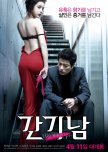
This film is no great whodunit. Despite that, the motivation behind the main crime remained satisfyingly mysterious for a good duration. Had the culprit been less obvious for as long, the story would be a touch more solid. It seemed most conflict came from mistakes the main character made. Detective Kang (Park Hee Soon) was very flawed and had vices to spare; with a little self-control, he’d have seen fewer troubles. I wanted to shake him by the shoulders and ask him to re-examine his life choices.
As mentioned before, there are some comedic aspects to The Scent. Laughs come primarily from members of the police force. They were just so disinterested with the case (despite doing a fine job of actual investigation). Some of them played around and made completely inappropriate jokes when alone. Others were more worried about petty things, like snakes in one scene where searching a field becomes necessary. Detective Kang and his assistant Poong also had their moments.
The Scent marks the first time I’ve taken serious notice of Park Hee Soon in a leading role. He does a fantastic job of making a character with shortcomings likable; it must be his niche. I feel excited at the prospect of seeing him again. Our leading lady, Park Si Yeon, fits the noir femme fatale image to perfection and is an undeniable beauty. Joo Sang Wook plays a memorable “hero;” his detective is everything one should be – and everything Detective Kang is not. Due to his stubborn behavior and hard-nosed perspective, he’s also that guy that everyone makes fun of when he leaves the room. Lastly, Running Man’s Lee Kwang Soo as Poong is pure fun…despite not having a lot of scenes. He definitely stole the limelight when did have them, though.
Questa recensione ti è stata utile?
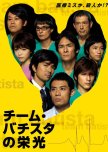
Team Batista no Eiko
7 persone hanno trovato utile questa recensione
Questa recensione ti è stata utile?
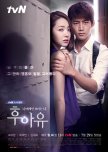
Though opening with an auspicious premise, execution is shaky at best. Cliches and obvious plot contrivances riddle the story with holes. Because Who Are You attempts realism even while necessitating the suspension of disbelief on other fronts, some token of veracity should be offered. Unfortunately, no venue ever offers this oasis. Police elements felt silly at best, but as a second poorly handled aspect (the coma) forces writers to realize it as such, a vicious cycle begins. The ghosts manage to be the most acceptable, though somewhat unimpressive, part. In the face of such stumblings, some interest remains at the heart of the main plot line. What happened to Lee Hyun Joon? This question acts as the life preserver which keeps everything else afloat.
It should not surprise then, that Kim Jae Wook owns the entire stage. Given little to say and few interactions to make, his Hyun Joon speaks volumes with the slightest gesture or expression. Many will fall for this character, and who can blame them? Everything riveting about Who Are You links back to him. Leads Taecyeon and So Yi Hyun work passably with people far less fascinating. Gun Woo, though a reasonably nice person, appears to have little life outside the events of the drama; Shi On barely feels like a police officer, let alone valedictorian in her year at the academy. And her series-launching coma...yikes. For all it affected her, they may as well have written it out.
Of the entire soundtrack, very little is memorable. Trickyneko provides one underused piece, “Our Story,” which sets a pleasantly spooky atmosphere.
Questa recensione ti è stata utile?

In true melodrama fashion, the plot kept conflict coming and left little room for boredom. The issue is that the conflicts were often over the top and low stakes. Characters exhibited selfish, unreasonable behaviors for little reason. Coupled with infuriating love line twists and other common drama irritants (overbearing family, lack of communication, etc.), Feast of the Gods felt like eating something spicy. It can be compelling to have a second bite after initial painful heat, but some people are more acclimated to spice than others. I’m not sure this is a very re-watchable show, that being said.
The acting is a mixed bag. For instance, Sung Yu Ri did fine as a hardworking “candy.” Around the halfway point though, the script has her Jun Young all over the place in terms of characterization. It may be the fault of the writers but her performance sometimes felt schizophrenic. On the other hand, Seo Hyun Jin played woman I positively hated – and did a great job of being villainous. She never found my sympathy though…which is unfortunate, because it was clear you were supposed to feel sorry for her. The men fared somewhat better, though neither got the story line attention they needed and deserved. I have to thank Feast of the Gods for introducing me to handsome Joo Sang Wook though. He was a pleasure and this experience gave me the push to see some of his other, higher-rated performances. Many viewers will find Lee Sang Woo lovable and I see the appeal. His character is mysterious and the actor himself feels like Hyun Bin and Park Shi Hoo all wrapped into one guy.
While I liked the OST well enough, I think they utilized it badly. There were occasions a song would play during the most inappropriate scene. Vocal pieces were all fine in practice, but aside from “Did You Forget” by Lee Seung Chul, I can hardly remember them.
Questa recensione ti è stata utile?

Viewers may note with some interest Jet Li in the starring role. Casting him was not a mistake. He disappears so completely into Sam Wong that I completely forgot Jet Li, famed action star. All that was left the gentle, loving father trying desperately to find a place in the world for his misunderstood child. Nothing would please me more than to see Li continue to show such different sides of his acting. As Sam's autistic child, Da Fu, Zhang Wen had a very convincing performance. He must have studied carefully to gain such a high level of realism. It was also easy to feel the love portrayed between the two; without such chemistry, the story would have failed.
Another well-handled aspect would be the use of cinematography. Gorgeous shots and quietly nurtured imagery adds a gentle sense of tragic beauty to the experience.
More sensitive viewers should be careful with this film. You may experience deep emotions despite the fact Ocean Heaven is subtle as can be. I felt moved, saddened, and outraged by turns; I actually wanted to go through the screen and help this poor family out myself. Needless to say the last 30 minutes had me in tears.
Questa recensione ti è stata utile?
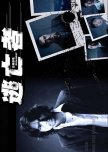
We join Nagai Tetsuo, a juvenile-parole officer, in a mad flight from the police he once closely worked with. Nagai returned home to find the aftermath of a brutal attack on his wife and son which only the child survived; despite being jumped by the culprit after, circumstances lead the detectives to lay the blame on him! When threatened with a swift death sentence and no justice in sight, our hero takes to foot—not only to clear his own name, but to find the real murderer before they make their next move. Our journey takes us through thrilling (if sometimes lucky) twists and turns, almost to the last moment. One thing this drama does excellently is throwing down evidence: something from the first episode might suddenly become shockingly relevant in the tenth. There are many instances where the viewer thinks they know something, but the detail actually refers to something else. My only problem is that certain reversals are more satisfying than others, though they all make good sense.
For those most concerned with "meh" endings when it comes to their Asian thrillers, don’t worry. I found this one well done and clear enough, though the first half could be considered rushed by some. For others more concerned with feelings as an aside to the action, the emotional aspect is given due diligence though nothing more.
Eguchi Yosuke headlines as our fugitive Nagai, physically in his prime yet slightly shackled by the mundane—if relatable—character. He looks great running, climbing, fighting, and investigating, yet I never got the feeling anything about Nagai “grew” or changed. That small complaint aside, nobody cries like Eguchi-san; he also displays a perfected, believable thousand yard stare which sent a shiver up my spine. Abe Hiroshi steals the spotlight as an Inspector Javert-esque detective, whose shocking disregard for protocol sets him aside from that great literary character in all ways but dogged pursuit. His Mineshima provides an excellent counterpoint for Nagai, almost as well as his chemistry links him with Eguchi-san. Their scenes together are some of the best. Mizuno Miki forms the third leg of the triangle, though her character felt more like a superfluous third wheel from time to time. The character is nothing special, but the actress has these expressive eyes and a knack for scenes which require physical activity. Of the remaining performers, they’re as you might expect: good, bad, and in-between.
In the introduction, I mentioned elements of the drama which come across as dated. Most noticeable among the offenders must be special effects. It seems clear a pretty penny got dropped for cinematography in general; Tobosha maintains an unfaltering silver-screen presence throughout its 11-episode run. Certain shots approach sincere beauty, such as when we witness our hero start running for the first time—his silhouette desperate against a backdrop of roaring flames. We even get an unprecedented number of extras for police chases, including actual squad cars (and also a helicopter). The problem rests almost chiefly with guns and explosions: guns spark like fireworks, while (with an exception or two) the explosions present as blatantly fake.
You know how when you buy a beloved album there’s always that song you skip? Tobosha has a soundtrack that can only be described with that type of situation. Two repeated instances struck me as cheesy, particularly this terrible almost “wild western” styled song. Almost everything else is suitable; my favorites include the piece used for “running” scenes, as well as the dramatic arrangements for big reveals. A great theme song can make or break an OST, so how lucky Toki no Fune (“Ship of Time,” as sung by a sweet-voiced Matsu Takako) was chosen for this one. It often begins to play a minute or two before the end of each episode, lending a nice amount of emotion to the final scenes. Plus, the credits themselves are worth staying to watch.
Questa recensione ti è stata utile?
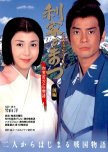
The key word is, of course, together; it’s impossible to imagine one without the other. Theirs is a deeply romantic story, an enduring love that blossomed and thrived despite the power struggles ravaging the country around them. The script manages to illustrate this bond beautifully, intertwining gentle domestic sequences with historical events important to the Maeda. Viewers become quickly immersed in the warm-hearted couple, their family and friendships. However, unless one is familiar with Toshiie’s place in history, it is difficult to justify why anyone needs to see this era through his eyes—at least until the second half of the drama. After a certain event, the pace picks up and the stakes rise dramatically, conspiring to draw Toshiie center stage. This is where Toshiie and Matsu shines; all of the emotional groundwork in the first half lends itself to a veritable explosion of emotion in the second, which is immensely satisfying and heartbreaking all at once. And that ending ...! Masterfully done.
As expected of a taiga, the cast is enormous. Karasawa Toshiaki and Matsushima Nanako star as Toshiie and Matsu respectively, and while Karasawa is everything a samurai should be, Matsushima steals the show. Her turn as the strong-willed, upright Matsu, respected even by Oda Nobunaga, is career-defining. Sorimachi Takashi, our Nobunaga this time around, is memorable, carrying intimidation even in his posture; his signature line “De aru ka?” is a running gag throughout the series. Kagawa Teruyuki is again quirky and energetic as Hideyoshi, which is by turns brilliant and tiresome—there are times I felt he missed crucial nuance other actors playing the same role have knocked out of the park. Additional highlights include Matsudaira Ken as Shibata Katsuie, tragic mentor to Toshiie and Oikawa Masahiro in the role of Maeda Keijiro, who brightened later episodes with his very presence.
The soundtrack, composed by Watanabe Toshiyuki, is elegant and fitting. I was particularly impressed with the sweeping romantic theme, especially played over the sweet introduction featuring our protagonists.
Questa recensione ti è stata utile?






















